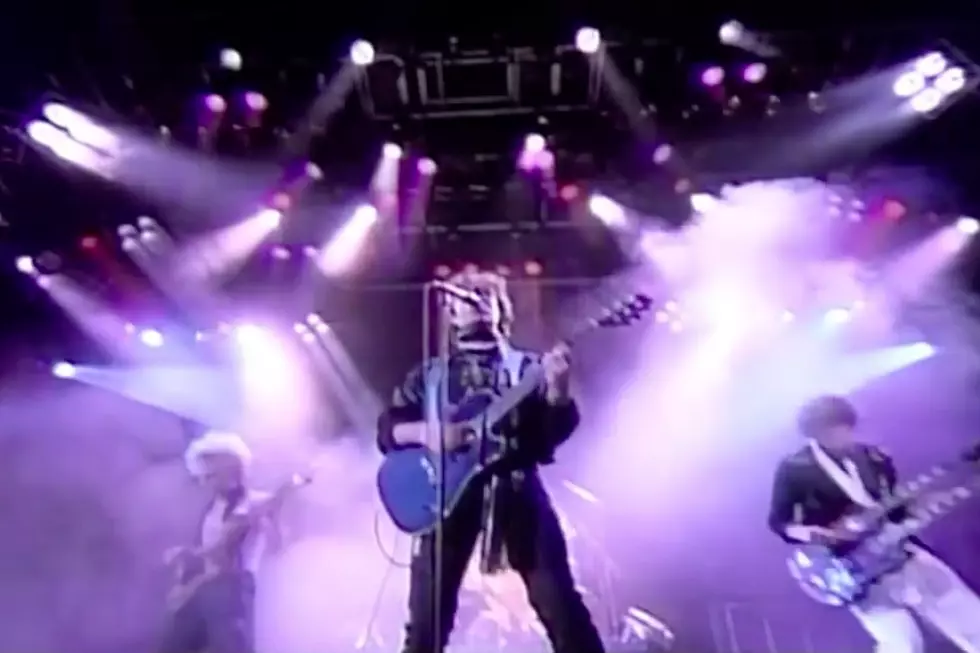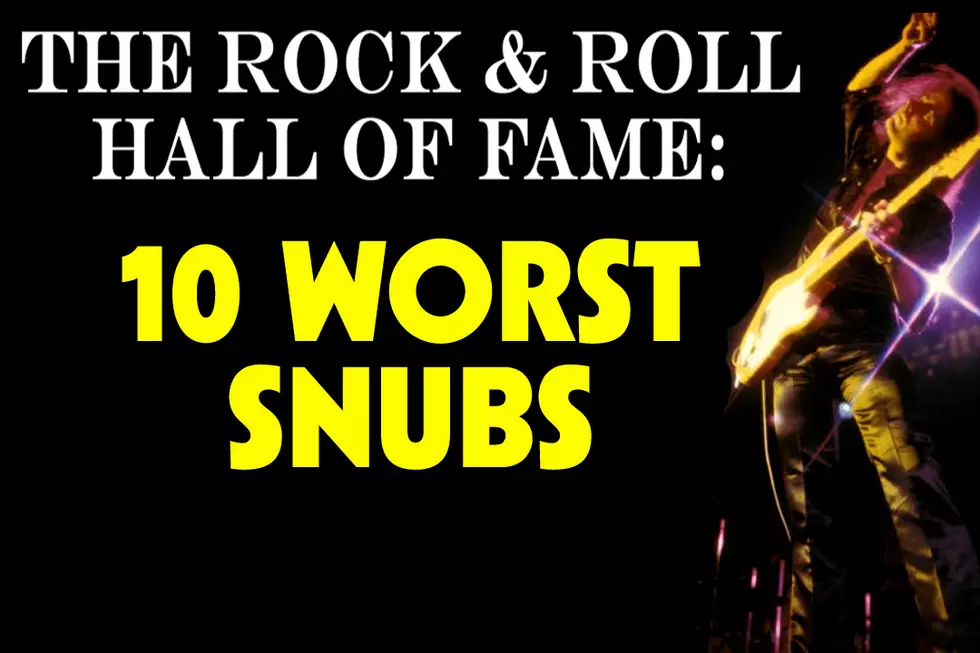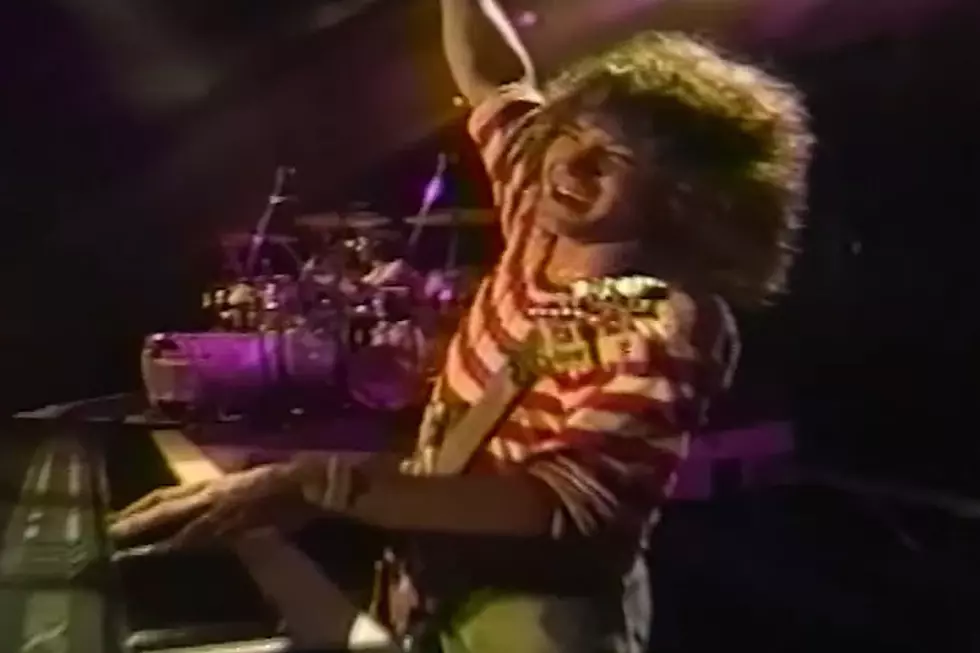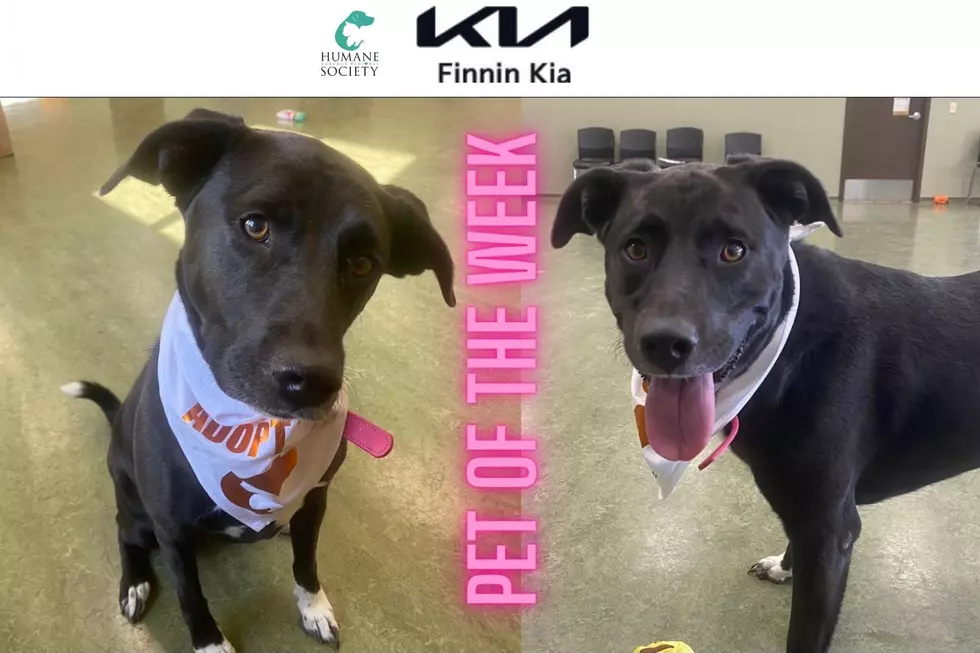
Heart Look Back on ‘Brigade,’ and Leaving the ’80s Behind: Exclusive Interview
Heart took a pop detour during the mid-to-late '80s, pulling themselves back from the commercial brink with a slew of glossy ballads that brought the band a brand new audience at the expense of their rock roots. By 1990, bandleaders Ann and Nancy Wilson were almost ready to close that chapter of their career.
That restlessness is reflected in the band's 10th studio album, Brigade. Pulling away from the more produced sounds of 1985's Heart and 1987's Bad Animals, the record upped the rock quotient from those recent efforts while still leaving plenty of room for radio-friendly pop songs, many of which were penned by outside writers. It was far from a complete break with the corsets-and-hairspray image that made Heart MTV darlings, but some of the cuts that weren't obvious singles threw a few more sparks.
But it's the singles that any big record is usually remembered for, and Brigade boasted a doozy: "All I Wanna Do Is Make Love to You," a "Mutt" Lange-penned ballad and another Top 5 hit that had almost nothing in common with Heart classics like "Barracuda." With the benefit of hindsight, Brigade sounds like the start of a turning point that would eventually bring the band full circle, and to celebrate the album's 25th anniversary, UCR's Matt Wardlaw spoke with the Wilsons as well as producer Richie Zito.
"It was a real interesting crossroads for us, because our first lifespan had pretty much ended as a rock band," Nancy says with a laugh. "You know, we’d been in a trough for a while. With Brigade, we sort of decided to kind of revamp ourselves and put on the military garb and become more of a fighting unit, you know, like the title of the album and sort of fight for it."
"We’d had this big ‘80s ride where we had suddenly two albums in a row that had gone No. 1, with No. 1 hits on them," Ann adds. "Tons of money and tons of rock videos, the way things were in the ‘80s. I’ve never lived through a time when such a low premium was set on female naturalness. So it was a challenge in that sense. So by the time we got to making Brigade at the end of the ‘80s, we were really more than ready to try and wiggle out of that skin and just get back to what it is that we really did. Brigade still has an ‘80s feel about it, because that’s what’s technically was going on in recording then. But the songs are getting back to being more of our type of stuff."
Watch Heart Perform 'Stranded'
At times, that journey back could feel sort of slow, as evidenced by the writing credits for Brigade; the first five songs all came from outside writers, including mainstays like Lange, Albert Hammond and Holly Knight and Diane Warren. "We had a lot of our own songs, but there were also still songwriters from L.A. that we were encouraged to do their songs as well. So it was sort of a halfway house between the ‘80s thing ... it was kind of a turning point," Nancy says. "We were sort of regaining our own identity back and still doing the ‘80s songwriters thing at the same time."
Among the outside writers who contributed to Brigade was Sammy Hagar, who co-wrote a pair of songs — "The Night" and "Fallen From Grace" — with members of Heart, primarily drummer Denny Carmassi, who'd played alongside Hagar in Montrose and Gamma as well as contributing to some of his early solo work. "We didn’t really know Sammy that well at the time," Nancy notes. "So it was more of an art-by-committee type song, where they had some pieces of it and we sort of finished it. We were never actually in the same room with Sammy doing that song, but there was so much that we liked about it, we just wanted to work on it too."
"Some of his stuff was more rock," Ann adds, listing Hagar as an example of outside influences they called upon in their effort "to get it back to more real" and pointing out that "We were just getting real tired of all of the artifice by that time."
Aiding the band in its quest to get a little further back to basics was Zito, whose recent stable of clients boasted a number of other rock veterans, including Cheap Trick and Bad English, who were caught between honoring their rock roots while satisfying label demands for Top 40 hits. While he says finishing Brigade was ultimately an eight-month process, he insists working with Heart was nothing but a pleasure.
"Anybody who has ever had the opportunity to work with these ladies can count themselves among the fortunate," Zito says. "They’re few and far between. Certainly, Heart are among the short list of American rock bands that can really tear it up."
"Richie understood what we were trying to say," Ann recalls. "Some of the producers that we’ve worked with in the past, you know, I don’t want to get into names and stuff, but they have wanted to make Heart sound like what was popular at the moment. Richie never did that. He was a gentleman and was really just almost brotherly with Nance and I. He was very good to work with. It was a very good experience."
Watch Heart Perform 'I Didn't Want to Need You'
For Zito, a lot of the tracking process involved spending long hours in the studio with guitarist and keyboard player Howard Leese, building tracks before the Wilsons came in to add their parts later in the day. "He was prompt and I was pretty prompt and we were pretty good and focused. He would play all day, he’d play guitar and keyboards all day and at 5 o’clock, the girls would come in and they would sing. Can you imagine how fun that was?" he says with a laugh. "Ann Wilson, she would sing and I was like, 'What the fuck am I going to do? That one is better than this one and this one is better than that one. These are all good. How do I pick the best?'"
Looking back on the way some of his clients were strong-armed into covering songs by professional writers, Zito is pragmatic about the pros and cons. "The bottom line is this — it was in vogue, plain and simple," he argues. "Look at what Aerosmith were able to accomplish, you know, cutting a couple of songs that were either written or co-written with or by someone else. Like, I was listening to Eddie Van Halen and Van Halen – their first couple of hits were old Kinks songs."
Arguing that a single is really just a way for an artist to say "'Okay, take a look: This is good, we’re good, check this out,'" Zito continues, "The way to say 'check it out' was with a three-minute single that, to me, was always kind of like a commercial to say 'Come on and in and take a look at this, because this is really, really good.' ... It’s very hard to look at artists that were seeing success from radio and MTV without the help. ... They certainly all had hit singles, whether Mutt Lange was writing them or Holly Knight or Diane Warren, it was the way it was going. But it was challenging, because the artists had had an enormous amount of success with nobody’s help from a songwriting perspective."
That songwriter's perspective occasionally made it difficult for Heart — and Ann Wilson in particular — to stand behind songs they didn't particularly love. "I think there’s a few of those 'really big hit songs' that didn’t really fly for us, because they were kind of force fed to us and Ann’s delivery just didn’t convince, because Ann wasn’t convinced," Nancy suggests. "So there’s a few Diane Warren songs along the way that any band could have done and had huge hits with, but because of Ann’s soulful delivery that she wasn’t able to do and feel like she was behind, I guess you could say, 'It’s not what you say, it’s how you say it.' Things could have been different if Ann hadn’t been such an idealist as a singer."
Somewhat surprisingly, "All I Wanna Do Is Make Love to You" ended up making the cut even though singing it required a complete gender reversal. "That song was originally written for a man to sing and it was pitched, I think, to Don Henley, who turned it down. So it got thrown in the pile of stuff that was being pitched to us," Ann recalls. "The band sounded good on it and when we turned the gender around, it became something unique. I don’t think the song in itself is particularly unique, but for the message that it brings from the female aspect, that’s unique."
Listen Heart Perform 'All I Wanna Do'
After altering the lyrics under Lange's supervision — "If there was a lyric change I wanted to make, it had to clear with him," Ann says – Heart made the song their own, and the rest was Hot 100 history. "You know, Mutt’s an extremely talented, brilliant guy. He knows exactly what he wants to do," Ann continues, laughing. "I think that it shocked some people a little bit. It was banned in Ireland, you know, because here’s a woman advocating random sex with a hitchhiker."
Noting that the band took the song out of its concert set list later in the decade, Ann says now that "it really didn’t move into the future as much as we wanted to" as Heart turned away from slick production and outside material. "We did have a big hit with 'All I Wanna Do Is Make Love To You,'" she agrees. "But we just wanted to move on from it."
"The one thing I can tell you right now is that I look back on records I’ve made and Brigade is definitely ... I mean, getting a chance to work with those girls was a big deal to me," Zito says. "I can’t say that enough. Getting that call meant a lot. Getting along with the girls, meant a lot. ... Getting their trust and success and enjoying each other’s [company], having fun and sharing good music. It doesn’t get better. It really just doesn’t get better."
As it happened, they chose an opportune moment to make the switch. Looking back on 1990, Nancy says, "That’s when music was turning back to guitar music again, you know, away from the huge layer cake production sound. We were kind of back in Seattle again," she laughs, "so it was like, it was cool to be from Seattle then!"
The problem was that, in spite of Heart's continued presence on the Mainstream Rock chart with Brigade cuts like the Lange-penned "Wild Child," they'd wandered pretty far from those Seattle days by the time grunge started taking over in the early '90s, and while Brigade definitely did well, peaking at No. 3 and selling more than two million copies, they found a far less receptive climate when they returned with Desire Walks On in 1993. That album's big single, "Will You Be There (In the Morning)" — also a Lange cut — barely scraped the Top 40, and the LP itself topped out at No. 48.
Following Desire Walks On, Heart abandoned their efforts to continue scoring pop hits, mounting an acoustic tour before going on hiatus for the remainder of the decade. When they returned to active duty in 2002, their set lists — and the albums of new music they've released since — were much more in line with the rock sound favored by longtime fans.
"Where we started in the ‘70s and where we’ve come to since then: The biggest shift was through the ‘80s," Nancy argues. Now, I think the stuff we’ve been more recently writing and recording, is more reminiscent to the stuff that we did earlier on and it’s kind of our authentic identity of our original incarnation."
Listen Heart Perform 'Secret'
Looking back on the '80s, Ann adds, "All of a sudden, you had to not only sound good and be good, but you had to look fabulous and be able to act on some level, or at least lip sync. Nobody was really prepared for that. So we had just gone through all of that, learning how to become theatrical and visual and [feeling] what it feels like to have number one albums in the country. It’s really a ride. Because all of a sudden, people treat you differently. Like, everyone’s bowing and scraping and going, 'Oh, you really deserve this,' and, 'I always knew you were just so great,'" she laughs. "It’s an exercise in humility and remembering who you are and where you come from."
And ultimately, for the Wilsons, remembering where they came from was more than worth the tradeoff in airplay or video exposure. "I think that we at some point made a decision that it was more important to us to be ourselves then to not be ourselves and get bucketloads of money. Because you can make that devil’s bargain and they can back the dumptrucks of money up to your house and it can be really unhappy behind it," Nancy points out. "We decided we didn’t want to go there, and we’ve been okay."
Ranking Every Heart Album
More From Eagle 102.3








